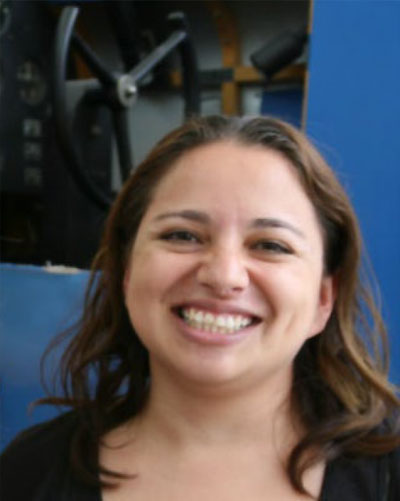Cancer Cell Biology Group

Research Professor
772-242-2452
eguzman9@fau.edu
Cancer is a collection of over a hundred diseases that have in common uncontrolled growth of cells containing damaged DNA. According to the National Cancer Institute, 1 in every 2 men and 1 in every 3 women in the United States will develop some form of cancer in their lifetime. While this statistic is in part the result of us living longer, as the risk of developing cancer increases with age, it also highlights the urgent need for the discovery of new medicines that selectively target cancer cells.

The Cancer Cell Biology Program seeks to discover marine natural products that can treat cancer, especially aggressive cancers with high incidence and/or lethality. This effort has identified over 100 natural products with cancer-fighting properties. The marine natural products discodermolide, leiodermatolide, aphrocallistin, dictyostatin and neopeltolide block cells from dividing. Manzamine A reduces the ability to spread to other organs (metastasis) and resistance to programmed cell death (apoptosis) of pancreatic cancer cells. Manzamine A and scalarin inhibit autophagy, a process by which cancer cells get nutrients and that may help them escape chemotherapies. Microsclerodermin A and spongiatriol target an important mediator of inflammation which has a strong link with cancer initiation and progression. Furospinulosin 1 induces apoptosis in triple-negative breast cancer cells only when grown as small tumors or spheroids, suggesting that this compound acts in a different manner than traditionally cytotoxic compounds. Some of our compounds prevent mast cells — immune cells that in pancreatic cancer appear to facilitate the initiation and progression of the disease— from degranulating, and thus releasing the growth and blood-vessel-forming factors contained within them. Some prevent the release of factors that facilitate new blood vessel formation while others reduce the expression of immune checkpoint molecules that stop the tumors from being recognized by the immune system.

We are focused on finding treatments for aggressive cancers, including lung, colon, pancreatic, and triple-negative breast cancers, to name a few. To achieve this, we are looking beyond compounds that directly kill cancer cells to compounds that can change the signaling inside the cancer cell or the tumor microenvironment that facilitates tumor initiation and progression, as well as compounds that can enhance or restore the immune response against the tumor.
Our research was highlighted in an episode of the Miami PBS Series Changing Seas titled “Prescription: Oceans.” Watch the episode
We recently participated in the Ocean Expert Exchange Webinar Series. Watch the video
HBOIF Discretionary Grant (Guzmán). Tackling Inflammation with Marine Natural Products to Prevent Pancreatic Cancer Initiation and Progression. Project Period: 7/1/2024-06/30/2025. This proposal seeks to identify marine natural products that can inhibit human mast cell degranulation using marine natural products. Mast cell degranulation is a driver of the transition from pancreatitis to pancreatic cancer. The main focus is to adapt the assay from 96 to 384 well format and increase clinical predictability by using human mast cells.
HBOIF Discretionary Grant (Guzmán). Fighting AGEs with Marine Natural Products. Project Period: 7/1/2023-06/30/2025. This proposal seeks to identify marine natural products that can reduce the effects of advanced glycation end products (AGEs) on human cancer cells. Accumulation of AGEs as we age are related to many dreaded diseases including cancer, heart and Alzheimer’s disease, to name a few.
NA23OAR0110316 (Guzmán). Exploration of Deep-Water Habitats off Puerto Rico and the USVI for Biotechnology Potential. 7/1/2023-6/30/2025. The major goal of this project is to collect samples from deep water habitats off the coast of Puerto Rico and the USVI to be studied through leveraging with other grant support to identify those with biotechnology potential.
23B12 (Guzmán). Cutting the Fuel Lines of Ras-driven Cancers with Marine Natural Products. 04/01/2023-03/31/2026. Cancers driven by mutations in Ras can activate pathways such as macropinocytosis and autophagy to facilitate their growth. This proposal seeks to identify marine natural products that can block these pathways.
HBOIF Discretionary Grant (Guzmán). Using Marine Natural Products to Stop Cancer Immune Escape. 7/1/2022-06/30/2024. This proposal seeks to identify marine natural products that can reduce the expression of the immune checkpoint molecule B7-H4, and of the FOXP3 receptor, a marker for regulatory T cells that is aberrantly expressed by some cancers. Both molecules facilitate cancer escaping immune responses.
HBOIF Save Our Seas License Plate (Guzmán). Cutting the Fuel Lines of Ras-driven Cancers with Marine Natural Products. 7/1/2021-06/30/2023. Cancers driven by mutations in Ras can activate pathways such as macropinocytosis and autophagy to facilitate their growth. This proposal seeks to identify marine natural products that can block these pathways.
9BC01 (Guzmán). Discovery of Marine Natural Products Active Against Triple Negative Breast Cancers Using 3D-Spheroid Cultures; An in vivo Relevant Assay Platform. 5/10/2019-11/30/2022. This project seeks to screen a structurally diverse library of marine natural products to identify those that selectively target triple negative breast cancer cells grown as spheroids that better mimic tumors. Compounds identified through this screening are expected to be more clinically relevant.
NA19OAR0110302 (Wright). Exploring the Blue Economy Biotechnology Potential of Deep-Water Habitats. 7/1/2019-6/30/2022. The major goal of this project is to collect samples from deep water habitats to be studied through leveraging with other grant support to identify those with biotechnology potential.